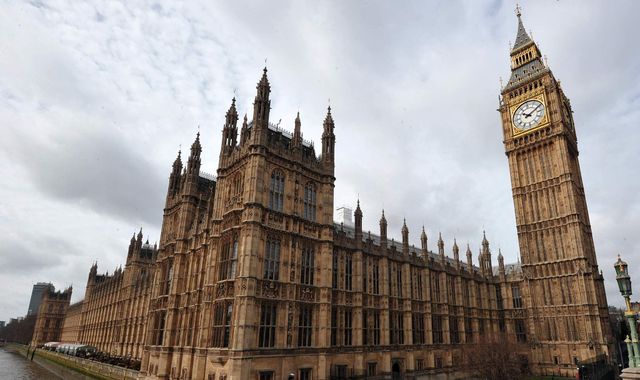Hung parliament: How a government is formed when there is no majority
Written by News on 09/06/2017
The Conservatives will be the largest party but have not won the seats needed for an overall majority, which means we now have a hung parliament.

So what does that mean for the next five years?
What is a hung parliament?
A hung parliament happens when no party has the 326 seats needed for the majority that allows them to govern outright.
A coalition generally needs more than 326 MPs in order to govern successfully, but, as Sinn Fein opts not to take their seats in the UK parliament, the number required can sometimes be smaller.
What happens immediately after all the results are in?
Protocol means that the previous government generally remains in place while there is a period of negotiation as discussions take place to form a coalition.
Following the general election in 2010, when no party had a majority, Gordon Brown remained as prime minister while the talks were taking place.
:: General Election results in full
It can take several weeks before parties strike an agreement to form a coalition.
If the incumbent government is unable to form a coalition big enough to rule, they may either resign and the largest opposition party may be invited to form a government, or they may try to continue to govern as a minority government.
In 2010, once talks between David Cameron’s Conservatives and Nick Clegg’s Liberal Democrats had been going for some time, Gordon Brown realised he would be unable to form a majority government and resigned, paving the way for David Cameron to become prime minister.
Does the Prime Minister have to resign?
The Prime Minister only has to resign if it is clear they cannot command a majority of the House of Commons on votes of confidence or supply.
:: Election results in full: Live vote share and seat changes
A confidence and supply agreement happens when a party or member of parliament agree to support the government on motions of confidence.
If a party can garner enough support to prevent them losing a motion of confidence, they can usually govern as a minority government but they may have some difficulty getting legislation through parliament unless they can win support of MPs outside their own party.
What happens if there is no overall control?
There were a number of occasions in the 20th century when there has been no overall control.
In 1923, the Conservative Party lost their majority and were unable to form a coalition. The party, led by Stanley Baldwin, stumbled on for nine months before they lost a vote on the King’s speech in January 1924. The Labour Party under Ramsay MacDonald then took office and governed as a minority administration until October of that year when that government too was defeated. It resulted in another election that was won by the Conservatives, with a much increased majority.
In February 1974, the incumbent Conservative administration lost its majority. Edward Heath, who was four seats behind Harold Wilson’s Labour Party, remained prime minister for a few days while he tried to form a coalition. He failed, leaving Mr Wilson to form a government but without a majority. He, like the government in 1923, carried on for a short time (seven months), before another election took place, which resulted in a Labour majority of three.
With such a small majority, Labour was able to govern but by 1977 it had to draw on the support of the Liberals and a pact was formed that lasted until May 1978.
What will happens this time?
A coalition looks unlikely at this stage as the Liberal Democrats have ruled out working with either party.
The Conservatives will look to work with the Unionist parties in Northern Ireland but that still may not give them a working majority.
Even if Labour forms a pact with the Scottish National Party, they may also not have enough to form even a minority government. If no party is able to command a majority on the basis of confidence and supply, the parties may have no choice but to call for another general election.
(c) Sky News 2017: Hung parliament: How a government is formed when there is no majority





